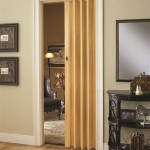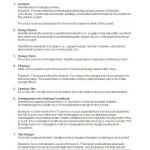Interior Designer Salary in Nashville, TN: A Comprehensive Overview
The field of interior design is a dynamic and multifaceted profession that combines creativity, technical skill, and project management expertise. In Nashville, Tennessee, a thriving city with a burgeoning real estate market and a vibrant arts scene, the demand for skilled interior designers is significant. Understanding the compensation landscape for these professionals is crucial for both aspiring designers looking to enter the field and established designers seeking to benchmark their earnings and negotiate favorable employment terms.
This article provides a comprehensive overview of interior designer salaries in Nashville, TN, examining the factors that influence earning potential, the range of compensation packages, and the opportunities available within the industry. It explores the impact of experience, education, specialization, firm size, and market conditions on the overall salary structure. By analyzing available data and industry insights, this article aims to offer a clear and informative perspective on the financial aspects of a career in interior design in Nashville.
Factors Influencing Interior Designer Salaries
Several key factors play a pivotal role in determining the salary range for interior designers in Nashville. These factors encompass individual qualifications, professional experience, and external market conditions. A thorough understanding of these influences is essential for navigating the salary negotiation process and making informed career decisions.
Experience Level: As with most professions, experience is a primary driver of salary growth in interior design. Entry-level designers, typically those with 0-2 years of experience, can expect to earn less than their more seasoned counterparts. These individuals are often involved in supporting roles, assisting senior designers with tasks such as drafting, material sourcing, and project coordination. Mid-career designers, with 3-5 years of experience, typically handle more complex projects independently and may begin to specialize in a particular area of design. Senior designers, possessing 5 or more years of experience, often lead design teams, manage large-scale projects, and cultivate client relationships. Their expertise and track record command higher salaries and greater responsibilities.
Education and Certifications: A formal education in interior design, typically a bachelor's degree from an accredited institution, is often a prerequisite for entry into the profession. The curriculum generally covers topics such as design principles, space planning, building codes, and computer-aided design (CAD) software. Holding a professional certification, such as the National Council for Interior Design Qualification (NCIDQ) certification, can significantly enhance career prospects and earning potential. The NCIDQ certification demonstrates a designer's competency and adherence to industry standards. Furthermore, advanced degrees, such as a Master of Fine Arts (MFA) in Interior Design, may open doors to specialized roles in design education, research, or high-end residential or commercial sectors.
Specialization: Interior design is a broad field encompassing various specializations, each with its own set of skills and market demands. Some designers focus on residential projects, working with homeowners to create personalized living spaces. Others specialize in commercial design, creating functional and aesthetically pleasing environments for businesses, offices, retail establishments, and hospitality venues. Healthcare design, focusing on creating therapeutic and efficient spaces for hospitals and clinics, is another specialized area. Sustainable design, emphasizing environmentally friendly materials and practices, is a growing niche that attracts clients seeking eco-conscious design solutions. The demand and complexity of each specialization can influence salary levels, with highly specialized areas often commanding higher compensation.
Firm Size and Type: The size and type of design firm can also impact salary levels. Large, established firms with a diverse portfolio of projects may offer more competitive salaries and benefits packages compared to smaller, boutique firms. Corporate design departments within large companies may also provide stable employment and competitive compensation. Freelance designers and independent contractors have the potential to earn high incomes, but their earnings are often dependent on their ability to secure consistent work and manage their own business expenses. Government agencies and non-profit organizations may offer lower salaries than private sector firms, but they may provide valuable experience and opportunities for public service.
Geographic Location and Market Conditions: Nashville's thriving economy and real estate market contribute to the demand for interior design services, which in turn influences salary levels. The cost of living in Nashville, compared to other major metropolitan areas, also plays a role in determining compensation. Furthermore, the overall economic climate and industry trends can affect the availability of jobs and the competition for talent. During periods of economic growth, the demand for interior design services typically increases, leading to higher salaries and more job opportunities. Conversely, during economic downturns, the demand may decrease, potentially impacting salaries and employment prospects.
Salary Ranges for Interior Designers in Nashville
Determining the precise salary range for interior designers in Nashville requires analyzing data from various sources, including salary surveys, job boards, and industry reports. It is crucial to acknowledge that these figures represent averages and may not reflect the specific circumstances of individual designers. However, they provide a valuable benchmark for understanding the overall compensation landscape.
Entry-Level Interior Designers: Entry-level interior designers in Nashville, with 0-2 years of experience, can generally expect to earn an annual salary ranging from $35,000 to $45,000. This range may vary based on factors such as education, internship experience, and the size and type of the firm. Responsibilities typically include assisting senior designers with drafting, space planning, material selection, and project administration. Entry-level designers often work under close supervision and gain practical experience in various aspects of the design process.
Mid-Career Interior Designers: Mid-career interior designers, with 3-5 years of experience, typically earn an annual salary ranging from $45,000 to $65,000. At this stage, designers often manage their own projects, develop client relationships, and specialize in a particular area of design. They are expected to have a strong understanding of design principles, building codes, and project management techniques. Mid-career designers may also supervise junior designers and contribute to the firm's marketing and business development efforts.
Senior Interior Designers: Senior interior designers, with 5 or more years of experience, can command annual salaries ranging from $65,000 to $90,000 or more, depending on their expertise, specialization, and the size and reputation of their firm. Senior designers are typically responsible for leading design teams, managing large-scale projects, and cultivating key client relationships. They possess a deep understanding of the design process, construction techniques, and business management principles. Senior designers often play a critical role in shaping the firm's design direction and strategic initiatives.
Specialized Interior Designers: Interior designers specializing in high-demand areas such as healthcare design, sustainable design, or high-end residential design may earn salaries exceeding the ranges mentioned above. These specializations often require advanced knowledge, specialized certifications, and a proven track record of success. The demand for these specialized skills can command premium compensation packages.
It is important to note that these salary ranges are estimates and may vary based on individual circumstances and market conditions. Factors such as negotiation skills, professional networking, and the ability to demonstrate value to clients and employers can also influence earning potential.
Navigating the Salary Negotiation Process
Successfully navigating the salary negotiation process is crucial for maximizing earning potential and securing a compensation package that reflects one's skills and experience. Preparation, research, and effective communication are essential components of a successful negotiation strategy.
Research Salary Benchmarks: Before entering into salary negotiations, it is essential to conduct thorough research on industry salary benchmarks. Utilize online resources such as salary surveys, job boards, and industry reports to gain a clear understanding of the prevailing salary ranges for interior designers with similar experience and qualifications in Nashville. This research will provide a solid foundation for justifying your desired salary and negotiating effectively.
Highlight Your Value Proposition: Clearly articulate your value proposition to the employer. Emphasize your skills, experience, and accomplishments, and demonstrate how your contributions will benefit the firm. Provide specific examples of successful projects you have completed, and quantify your achievements whenever possible. Showcase your ability to generate revenue, improve efficiency, and enhance client satisfaction.
Negotiate the Total Compensation Package: Salary is only one component of the total compensation package. Be prepared to negotiate other benefits, such as health insurance, retirement plans, paid time off, professional development opportunities, and bonuses. Consider the value of each benefit and prioritize those that are most important to you. A comprehensive benefits package can significantly enhance your overall compensation.
Be Confident and Professional: Approach the salary negotiation process with confidence and professionalism. Be prepared to articulate your desired salary range and justify your request with factual data and persuasive arguments. Listen attentively to the employer's perspective and be willing to compromise. Maintain a positive and respectful demeanor throughout the negotiation process, even if disagreements arise.
Consider Consulting with a Career Advisor: For guidance and support during the salary negotiation process, consider consulting with a career advisor or industry mentor. These professionals can provide valuable insights, advice, and negotiation strategies based on their experience and knowledge of the interior design industry.
By following these strategies and preparing thoroughly, interior designers in Nashville can effectively negotiate their salaries and secure compensation packages that reflect their skills, experience, and value to the employer.

56k 100k Interior Designer Jobs In Nashville Tn

Interior Designer Job In Nashville Tn At Rh Hiring Now
Interior Designer Advanced Restoration Hardware Jobzmall

Ui Ux Designer Salary Guide 2025 Average Compensation

Autocad Basics From Tennessee State University

Careers Gpj

Most In Demand Tech Job Nashville 2025

Colorful Career Unk Graduate Finds Happiness As Designer Social Media Personality

Assistant Professor Of Interior Design Job With Liberty University 37735605

Hospitality Careers Nashville The Hermitage Hotel








